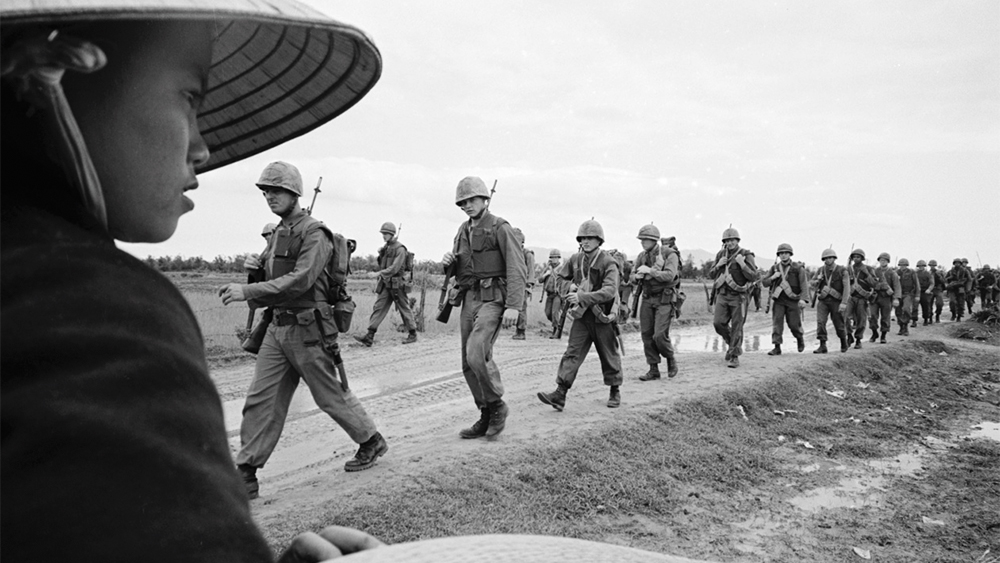Could Trent Reznor and Atticus Ross’ Score to ‘Vietnam War’ Doc Be an Emmys Contender?
By Jon Burlingame
LOS ANGELES (Variety.com) – Could a documentary score win a prime-time Emmy, competing against music from some of the biggest dramatic shows on television?
The answer is yes. It’s happened twice in the past seven years (“Cosmos” in 2014, an “American Masters” doc in 2011). Last year alone, four documentaries were nominated for their music, and seven others were nominated in the decade prior.
Emmy rules don’t specifically disqualify a score just because it’s been written for a non-fiction film, so composers in that field are eligible to enter the prime-time competition, in either the “composition for a series” or “composition for a limited series, movie or special” categories.
Notes Trent Reznor, who with Atticus Ross composed the score for Ken Burns’ “The Vietnam War” PBS doc: “With ‘Vietnam,’ there was heightened awareness that this was precious material that needed to be treated with absolute dignity, which elevates it beyond a story someone created for entertainment purposes.
“We just try to get our heads into the spirit of the story we’re trying to tell, what feels like the right way to convey this emotion, this tone. It makes no difference to me if it’s a TV show or documentary or feature drama.”
They started more than four years ago, when Burns first approached the Oscar winners (“The Social Network”). He gave them a list of moods – everything from “anxiety, doubt and dread” to “unbearable tension” and “existential loneliness” – and the pair delivered “ruminations on all of those themes,” some pieces as long as eight to 10 minutes.
Adds Ross: “Generally the process starts impressionistic, and then becomes more focused as the pictures start to take shape and things become more clear.” Ultimately, he says, they delivered “several hours” of music that Burns and co-director Lynn Novick applied to their 10-part examination of the war.
For BBC’s nature documentary “Blue Planet II,” a trio of composers (Hans Zimmer, Jacob Shea, David Fleming) delivered more than five hours of music over “four or five months” last year.
They came up with a concept they called “the tidal orchestra,” says Fleming: “The idea was to create an impressionistic sound, the sound of the ocean itself… to have all the players play in a very textured, layered way, to create this almost liquid, ebbing and flowing sound, which we were then able to apply to the rest of the show.”
These were recorded in London, while the rest of the score was recorded in Vienna with an 80-piece orchestra. Fleming says they treated the scenes no differently than they would a fictional narrative: “These stories, that [the filmmakers] captured so cinematically, are just as dramatic as any Hollywood film. These animals are such amazing characters that they really deserve the same treatment.”
There was also a 20-voice choir, Shea added, and a handful of unusual instruments including electric harp. “We would all collectively watch an episode, then take a piece of it back to our work areas, then reconvene and let each other’s pieces influence the shape of the score. It was very collaborative, and Hans was an active participant,” Shea says.
Showtime’s “The Putin Interviews,” in which director Oliver Stone talked to Russian president Vladimir Putin, was “a challenge to score,” composer Jeff Beal admits. “I had written one theme that Oliver felt was too foreboding. It was too far ahead of the story. He wanted something to invite people to come on this adventure.
“We ended up with a main-title sequence that has this wonderful throwback of classic Soviet posters from the early 20th century, and I wrote music that was almost like a Russian march tune.”

